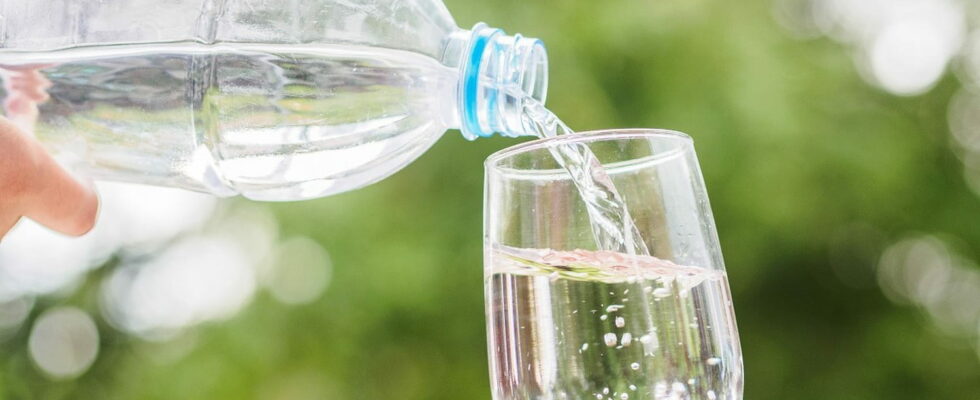We know that you need to drink water every day to stay fit and healthy. But how much should you drink exactly? Here is a summary table that takes your weight into account.
We know that water is essential for the proper functioning of our body, which is made up of 65% of it – blood, the cells that form our tissues (muscles, fat and organs), secretions, etc. In addition to hydrating all our cells, it provides them with numerous minerals and trace elements. It is also what eliminates digestive waste and helps maintain body temperature. However, we constantly release it, whether through urine, stools, exhaled air or sweating. Also, for our body to continue to function well, it is imperative to compensate 100% for its natural water loss.
But exactly how much water should we drink each day? It is commonly accepted that you should drink 1.5 liters of water per day, the equivalent of a large bottle of water. The reality is, however, a little more complex, since many criteria are taken into account, such as weight, height, age, outside temperature, level of physical exercise, state of health, etc.
However, different sources are more or less in agreement on the appropriate amount of fluid to ingest daily. Thus, the American non-profit advisory body The National Academies of Sciences, Engineering and Medicine recommends drinking 3.7 liters per day for men and 2.7 liters for women. For its part, Harvard University confirms this amount with 15.5 cups (3.67 l) of water for men and 11.5 cups (2.72 l) for women. As for the European Food Safety Authority (EFSA), it takes into account the individual’s weight and recommends that adolescents and adults drink 30 to 40 ml of water per kilogram of body weight each day. Again, this average excludes many criteria, but it gives an order of magnitude, to be adapted individually.
This means that an adult weighing 50 kg will need to consume between 1.5 and 2 liters per day, while an 80 kg person will need at least 2.4 liters daily. Here is a table which will tell you the average quantity according to your weight:
| Weight in kg | Amount of water per day in milliliters (including food) |
| 40kg | 1350 ml to 1800 ml |
| 50 kg | 1500 ml to 2000 ml |
| 55kg | 1650 ml to 2200 ml |
| 60 kg | 1,800 ml to 2,400 ml |
| 65 kg | 1950 ml to 2600 ml |
| 70 kg | 2,100 ml to 2,800 ml |
| 75 kg | 2,250 ml to 3,000 ml |
| 80 kg | 2,400 ml to 3,200 ml |
| 85 kg | 2,550 ml to 3,400 ml |
| 90 kg | 2,760 ml to 3,600 ml |
| 95 KG | 2,850 ml to 3,800 ml |
| 100kg | 3000 ml to 4000 ml |
| 105 kg | 3,150 ml to 4,200 ml |
| 110 kg | 3,300 ml to 4,400 ml |
| 115 kg | 3,450 ml to 4,600 ml |
| 120kg | 3,600 ml to 4,800 ml |
These results may seem impressive, but they are based on the amount of fluid you drink over a whole day. Remember, you also drink water when you eat, especially fresh fruit. However, be careful with sugary drinks, coffee and tea, which are stimulants and tend to dehydrate your body.
What to do if you don’t drink enough? Keep in mind that not being thirsty does not mean not needing to drink. Indeed, if the mind is busy, it does not necessarily feel thirsty, while the body still becomes dehydrated. It is by drinking that the desire to drink arises. We therefore recommend that you drink little by little, keeping a bottle of water in your field of vision at all times to think about it. Once you get into the habit, it will go smoothly!
